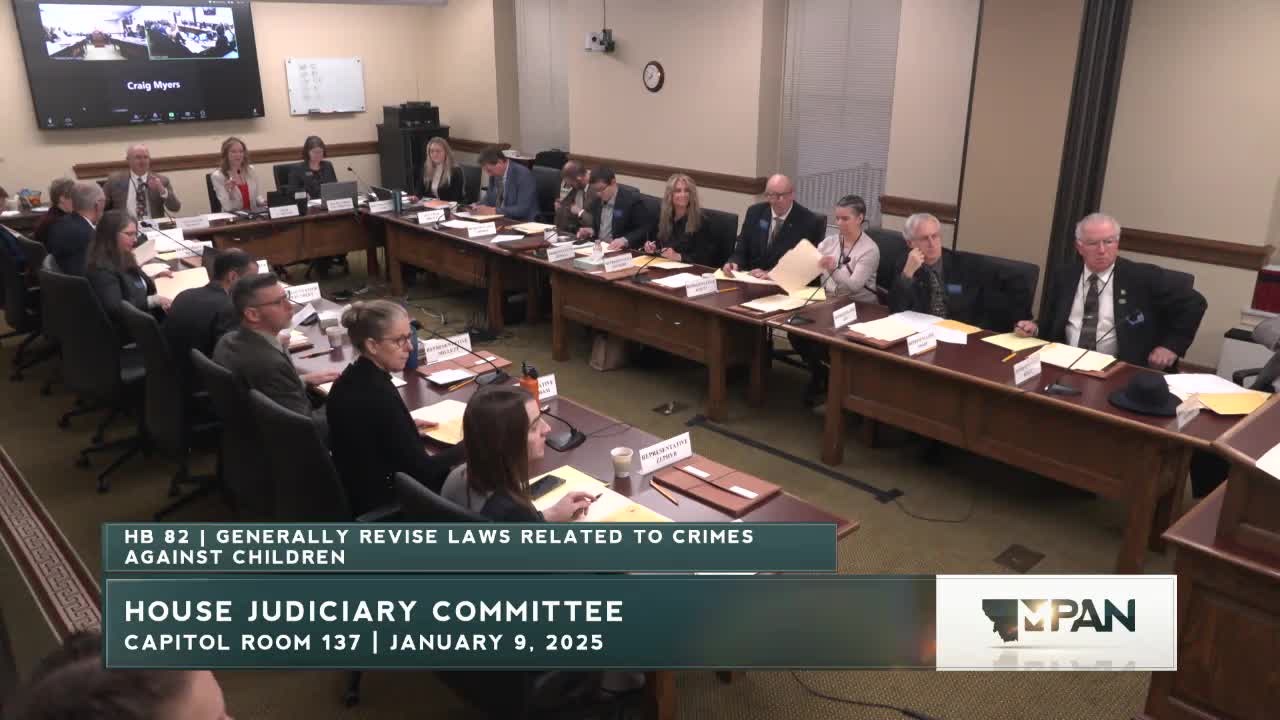Article not found
This article is no longer available. But don't worry—we've gathered other articles that discuss the same topic.
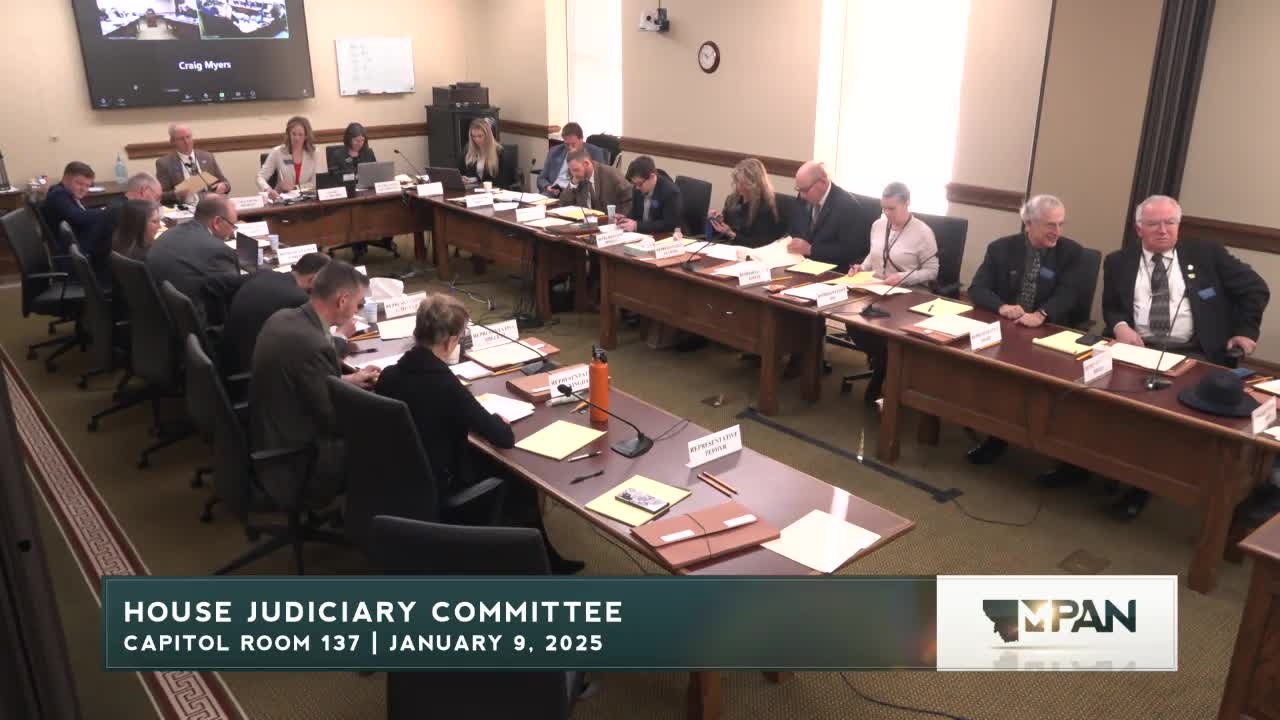
Bill seeks tougher penalties when tampering with bodies prevents determination of homicide
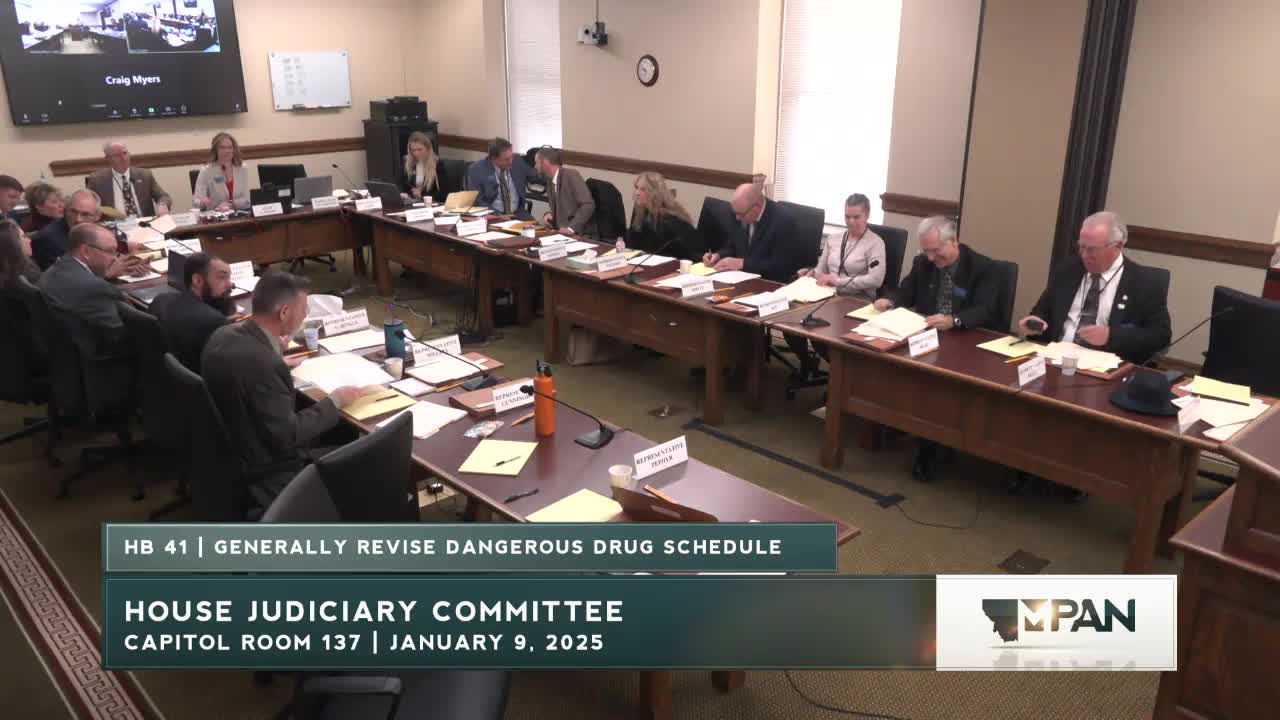
Legislators consider scheduling gabapentin after DOJ and crime-lab testimony on rising abuse
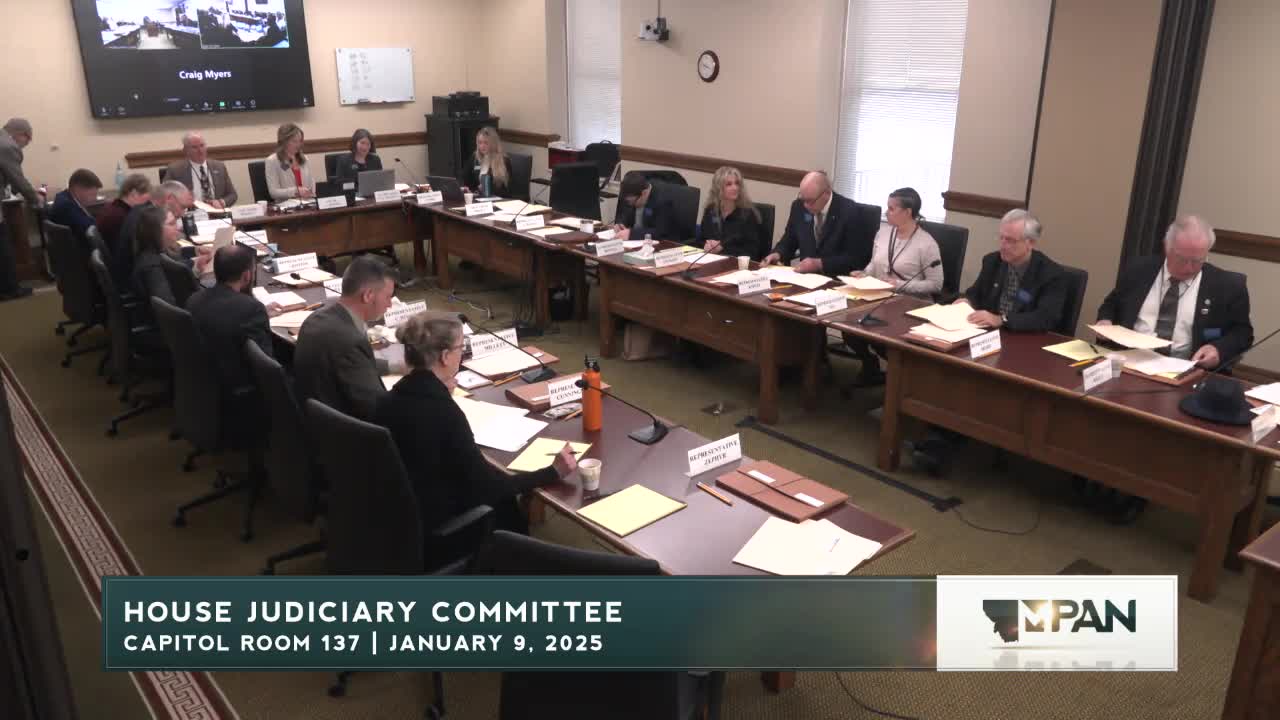
Bill would give Montana DCI clearer concurrent jurisdiction on trafficking, ICAC and related offenses
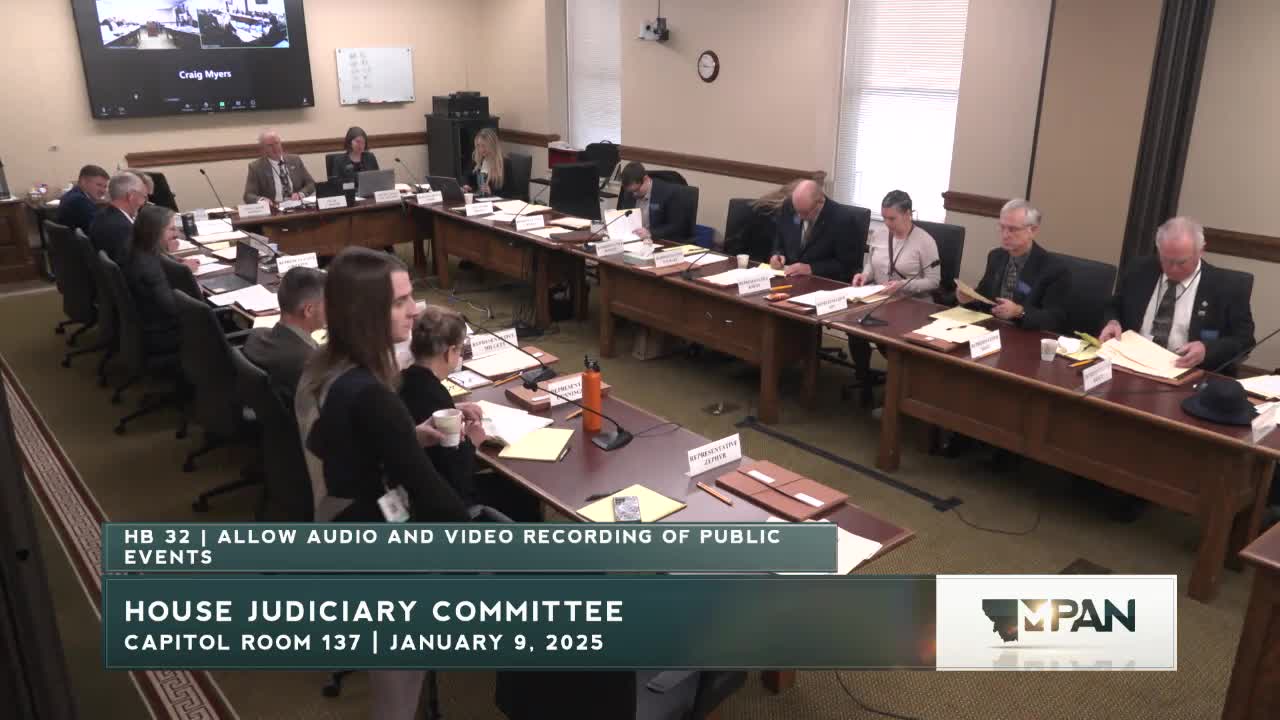
Committee hears fix to parental-permission rule so routine school videos aren’t blocked
